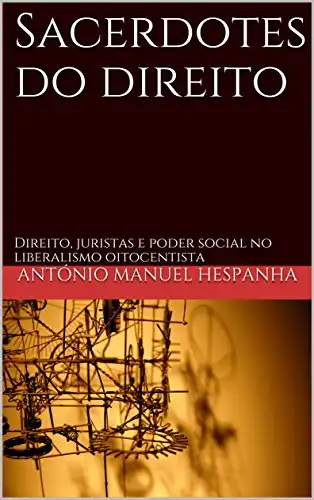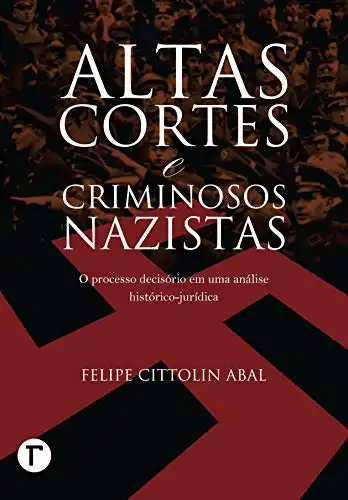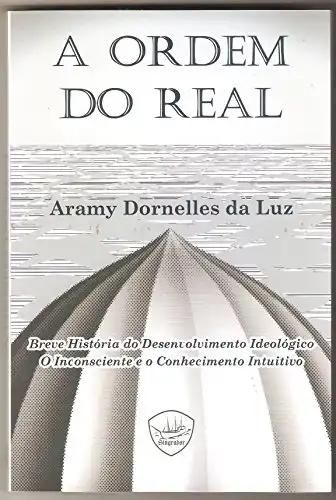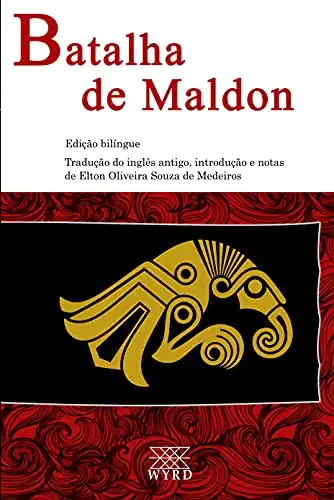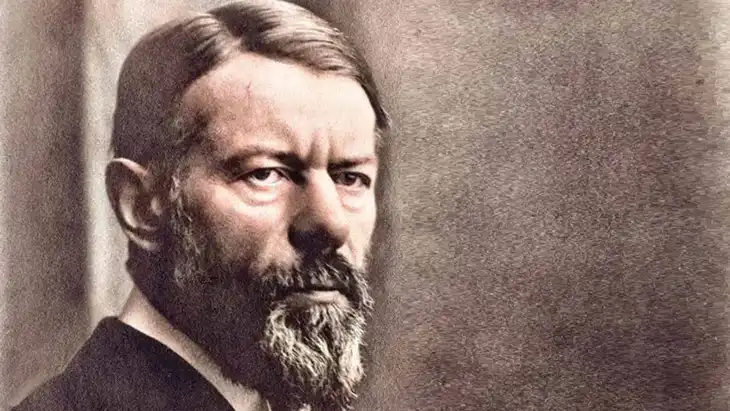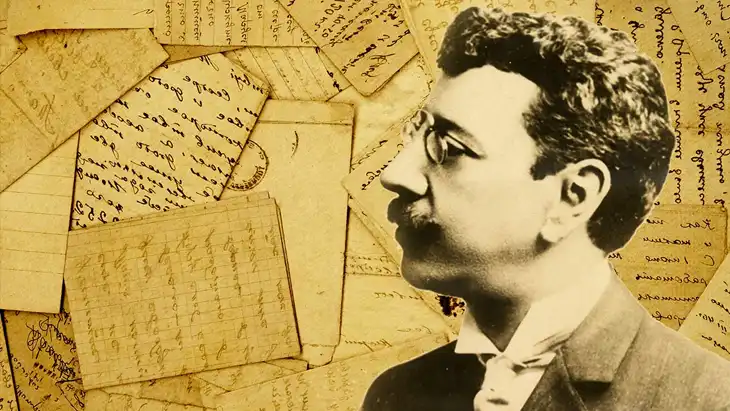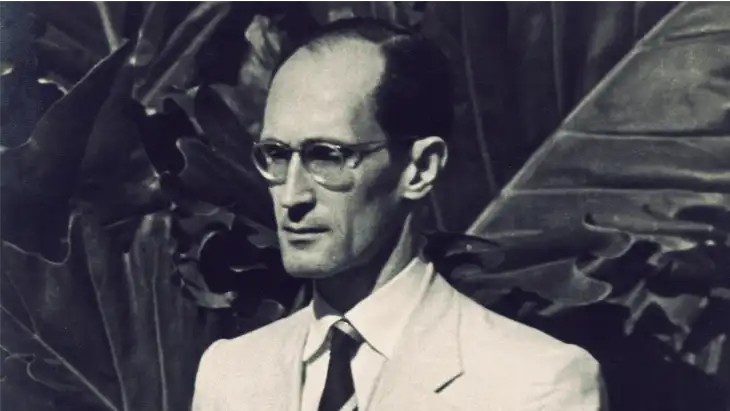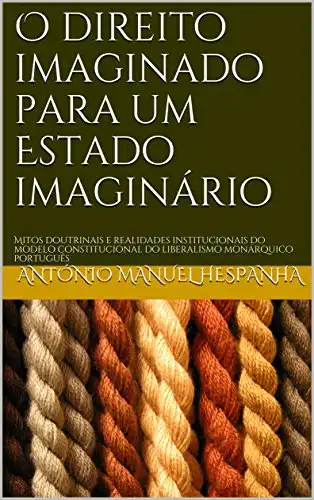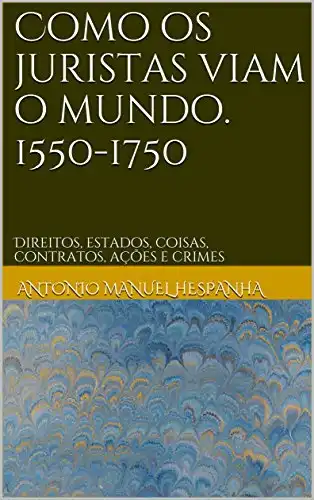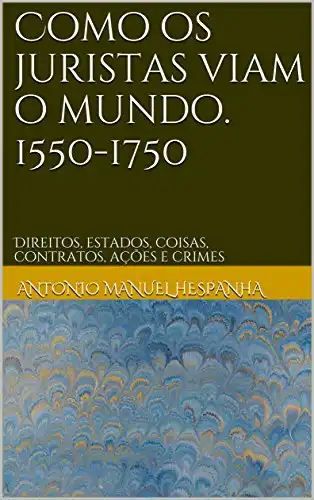Sacerdotes do direito: Direito, juristas e poder social no liberalismo oitocentista
Por Antonio Manuel Hespanha O título deste livro aponta o tema da centralidade política dos juristas, concretamente na sociedade oitocentista portuguesa. Como se dirá, Almeida Garrett falou, a este propósito, de uma “desembargocracia”. Considerado todo o século, a expressão é desajustada. Não eram só os desembargadores que dominavam o poder, nomeadamente esse poder decisivo de dizer o direito. Nem eram, acrescento, principalmente eles. Vistas as coisas em ponto grande, a parte de leão na distribuição do poder de dizer o direito e de, com isto, resolver conflitos privados e públicos, cabia aos jurisconsultos doutrinários, autores de livros ou manuais que formaram milhares de juízes, advogados, procuradores, parlamentares, burocratas e, em geral, “gente culta”, mesmo não juristas. Numa época anterior ao aparecimento das ciências sociais, eram estes os livros que modelavam a opinião comum quanto aos direitos e deveres de cada um, quanto aos poderes do governo e, em geral, quanto ao funcionamento da sociedade.
Reuni aqui uma série de textos, remanejados ou inéditos, acerca do direito (sobretudo do direito público), seus temas e seus agentes, no período chamado liberal, que, em Portugal, corresponde à monarquia constitucional.
Na maior parte destes textos, o labor dogmático e doutrinal dos juristas aparece como o objeto destacado de investigação. Não que se ignore a importância de outros níveis da prática jurídica – como o direito legislado e o trato jurídico das comunidades periféricas. Mas destaca-se a eficácia estruturante – direta ou mediada – do discurso dos juristas letrados sobre o conjunto da normação social (e não apenas estritamente jurídica).
The title of this book addresses the theme of the political centrality of jurists, namely in the Portuguese 19th century society. As will be said, Almeida Garrett spoke, in this regard, of a “desembargocracia” (rule of high judges). Considered the whole century, the expression is mismatched. It was not only the judges who dominated power, especially that decisive power to tell the law. Nor were mostly them the jurists who ruled society. On the whole, the lion’s share of the power of telling the law, and thereby solving private and public conflicts, was up to doctrinal jurisconsults, authors of books or manuals that formed thousands of judges, lawyers and solicitors, politicians, bureaucrats and, in general, educated people, even non-jurists. In an age before the emergence of the social sciences, these were the books that shaped common opinion about the rights and duties of each one, as about the powers of government, and in general, as about the functioning of society.
I have gathered here a series of texts, revised or unpublished, about the law (mainly public law), its themes and its agents, in the so-called liberal period, which, in Portugal, corresponds to the constitutional monarchy.
In most of these texts, the dogmatic and doctrinal work of jurists appears as the outstanding research object. Not that the importance of other levels of legal practice – such as the legislated law and the legal handling of social communities – is ignored. But the structuring effectiveness – direct or mediated – of the legal professors’ discourse on the whole of social (not just strictly juridical) norms is outstanding.
Reuni aqui uma série de textos, remanejados ou inéditos, acerca do direito (sobretudo do direito público), seus temas e seus agentes, no período chamado liberal, que, em Portugal, corresponde à monarquia constitucional.
Na maior parte destes textos, o labor dogmático e doutrinal dos juristas aparece como o objeto destacado de investigação. Não que se ignore a importância de outros níveis da prática jurídica – como o direito legislado e o trato jurídico das comunidades periféricas. Mas destaca-se a eficácia estruturante – direta ou mediada – do discurso dos juristas letrados sobre o conjunto da normação social (e não apenas estritamente jurídica).
The title of this book addresses the theme of the political centrality of jurists, namely in the Portuguese 19th century society. As will be said, Almeida Garrett spoke, in this regard, of a “desembargocracia” (rule of high judges). Considered the whole century, the expression is mismatched. It was not only the judges who dominated power, especially that decisive power to tell the law. Nor were mostly them the jurists who ruled society. On the whole, the lion’s share of the power of telling the law, and thereby solving private and public conflicts, was up to doctrinal jurisconsults, authors of books or manuals that formed thousands of judges, lawyers and solicitors, politicians, bureaucrats and, in general, educated people, even non-jurists. In an age before the emergence of the social sciences, these were the books that shaped common opinion about the rights and duties of each one, as about the powers of government, and in general, as about the functioning of society.
I have gathered here a series of texts, revised or unpublished, about the law (mainly public law), its themes and its agents, in the so-called liberal period, which, in Portugal, corresponds to the constitutional monarchy.
In most of these texts, the dogmatic and doctrinal work of jurists appears as the outstanding research object. Not that the importance of other levels of legal practice – such as the legislated law and the legal handling of social communities – is ignored. But the structuring effectiveness – direct or mediated – of the legal professors’ discourse on the whole of social (not just strictly juridical) norms is outstanding.
Características do eBook
Aqui estão algumas informações técnicas sobre este eBook:
- Autor(a): António Manuel Hespanha
- ASIN: B074KKK3XM
- Idioma: Português
- Tamanho: 2849 KB
- Nº de Páginas: 522
- Categoria: História
Amostra Grátis do Livro
Faça a leitura online do livro Sacerdotes do direito: Direito, juristas e poder social no liberalismo oitocentista, escrito por António Manuel Hespanha. Esse é um trecho gratuito disponibilizado pela Amazon, e não infringe os direitos do autor nem da editora.
